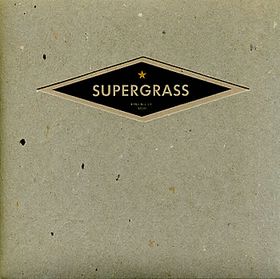lose — W1S1 [lu:z] v past tense and past participle lost [lɔst US lo:st] ▬▬▬▬▬▬▬ 1¦(stop having attitude/quality etc)¦ 2¦(not win)¦ 3¦(cannot find something)¦ 4¦(stop having something)¦ 5¦(death)¦ 6¦(money)¦ 7 have nothing to lose 8¦(time)¦ … Dictionary of contemporary English
lose — [ luz ] (past tense and past participle lost [ lɔst ] ) verb *** ▸ 1 stop having something ▸ 2 be unable to find ▸ 3 not win ▸ 4 have less than before ▸ 5 when someone dies ▸ 6 no longer see/hear etc. ▸ 7 not have body part ▸ 8 stop having… … Usage of the words and phrases in modern English
lose — [luːz] verb lost PTandPP [lɒst ǁ lɒːst] losing PRESPART [transitive] 1. to stop having something any more, or to have less of it: • The industry has lost 60,000 jobs. • After a boardroom battle, Dixon lost control of the company … Financial and business terms
Lose — (l[=oo]z), v. t. [imp. & p. p. {Lost} (l[o^]st; 115) p. pr. & vb. n. {Losing} (l[=oo]z [i^]ng).] [OE. losien to loose, be lost, lose, AS. losian to become loose; akin to OE. leosen to lose, p. p. loren, lorn, AS. le[ o]san, p. p. loren (in comp.) … The Collaborative International Dictionary of English
lose — [lo͞oz] vt. lost, losing [ME losen, lesen, merging OE losian, to lose, be lost (< los, LOSS) + leosan, to lose, akin to OHG (vir)liosan, Goth (fra)liusan < IE base * leu , to cut off, separate > Gr lyein, to dissolve; L luere, to loose,… … English World dictionary
lose — ► VERB (past and past part. lost) 1) be deprived of or cease to have or retain. 2) become unable to find. 3) fail to win. 4) earn less (money) than one is spending. 5) waste or fail to take advantage of. 6) ( … English terms dictionary
Lose — Lose, r, ste, adj. et adv. welches die Bedeutungen der Wörter los, leicht und liederlich in sich zu vereinigen scheinet. Es bedeutet, 1. In mehr eigentlichem Verstande. 1) * Nicht die gehörige Festigkeit habend, in welcher aber los ohne e… … Grammatisch-kritisches Wörterbuch der Hochdeutschen Mundart
lose — (v.) O.E. losian be lost, perish, from los destruction, loss, from P.Gmc. *lausa (Cf. O.N. los the breaking up of an army; O.E. forleosan to lose, O.Fris. forliasa, O.S. farliosan, M.Du. verliesen, O.H.G. firliosan, Ger. verlieren … Etymology dictionary
lose — lüz vt, lost lȯst; los·ing 1) to become deprived of or lacking in <lose consciousness> <lost her sense of smell> also to part with in an unforeseen or accidental manner <lose a leg in an auto crash> 2 a) to suffer deprivation… … Medical dictionary
loše — lȍše pril. <komp. gȍrē> DEFINICIJA slabo, krivo, zlo, nevaljalo, pokvareno [loše mi ide; nije loše u dijaloškoj situaciji kao odgovor: vrlo dobro, odlično, bolje od očekivanoga; loše postupati; stvari stoje loše] ETIMOLOGIJA vidi loš … Hrvatski jezični portal
lose — [v1] be deprived of; mislay be careless, become poorer, be impoverished, bereave, be reduced, capitulate, consume, default, deplete, disinherit, displace, dispossess, dissipate, divest, drain, drop, exhaust, expend, fail, fail to keep, fall short … New thesaurus

